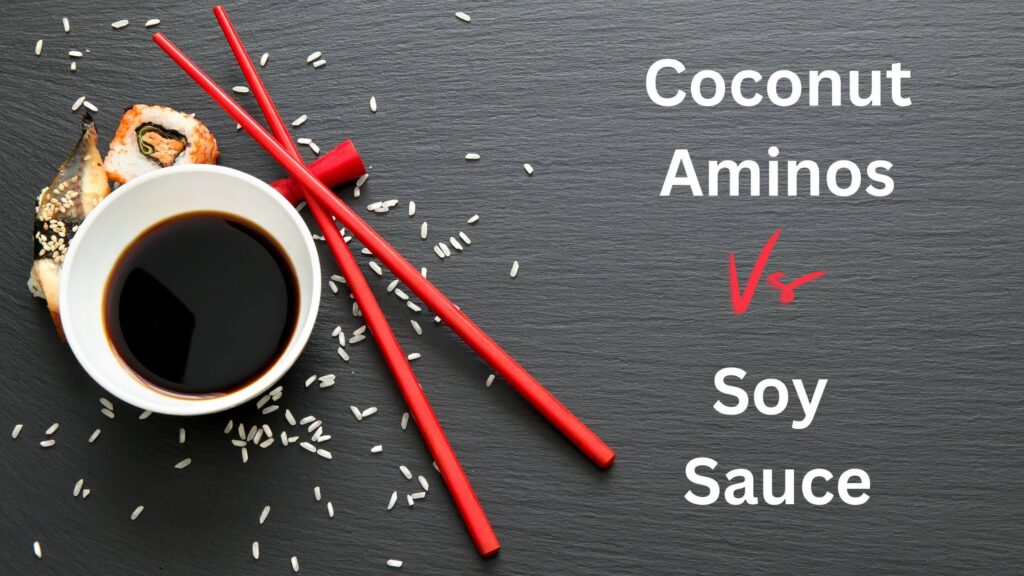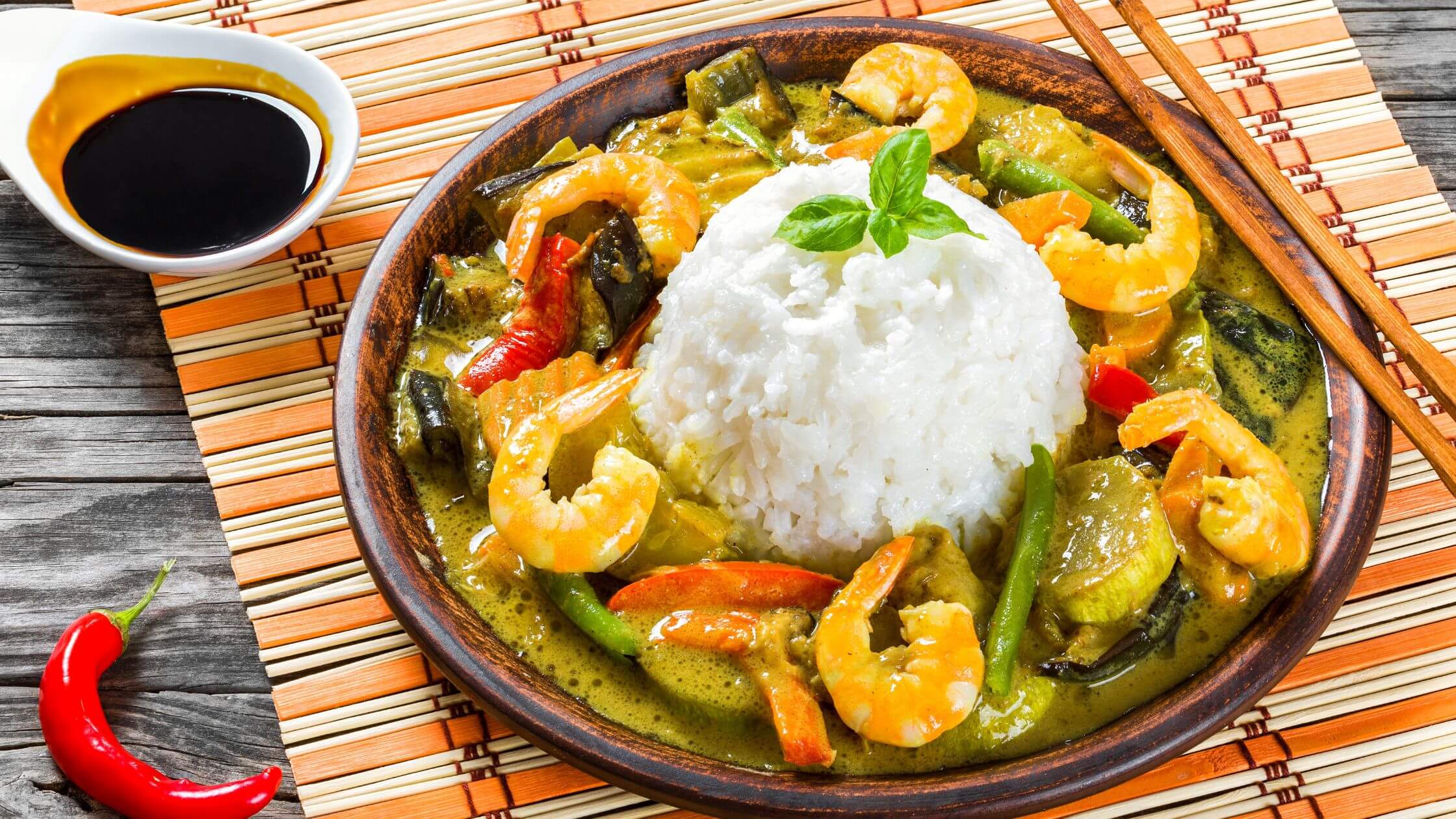When it comes to seasoning your dishes, sauces play a pivotal role in enhancing flavor and adding that perfect umami kick. Two popular contenders in the world of sauces are coconut aminos and soy sauce. While both can elevate your culinary creations, they differ significantly in taste, nutritional content, and their suitability for various dietary preferences. Let’s explore the many differences between coconut aminos and soy sauce, helping you make informed choices in your kitchen.
Coconut Aminos vs. Soy Sauce: 5 Main Differences
1. Taste Difference
In truth, this is probably where the two ingredients are most similar. Both coconut aminos and soy sauce are both used to create a savory umami flavor. With that said, even in taste, there are some notable differences.
Because coconut aminos is fermented from (you guessed it) coconut palm, it has a much sweeter flavor in comparison to soy sauce. In a single teaspoon of coconut aminos, there’s about 1 gram of sugar. While in a single teaspoon of soy sauce, there are 0 grams of sugar.
On the flip side, soy sauce is fermented from soy, wheat, and salt and has a much saltier flavor in comparison to coco aminos.
2. Sodium Difference
Another key difference between these two ingredients is their salt content. Soy sauce contains significantly more sodium than coco aminos.
In a single teaspoon of soy sauce, there is about 280 mg of sodium and in the same serving size of coconut aminos, there is only 90 mg of sodium.
If you’re looking to lower your sodium intake, coconut aminos may be a healthier alternative to soy sauce.
3. Gluten vs Gluten Free
This difference is fairly straightforward. Because soy sauce uses wheat in its fermentation, it also contains gluten. On the flip side, coconut aminos is naturally gluten-free.
If you’re looking for a gluten-free alternative to traditional soy sauce, coconut aminos is a good option.
4. Soy Difference:
As the name suggests, soy sauce is derived from soybeans. While soy is a staple ingredient in many diets, some people are allergic to soy or prefer to avoid it due to dietary restrictions.
Coconut aminos are soy-free, making them a suitable choice for individuals with soy allergies or those seeking soy alternatives.
5. Price Difference:
Price considerations can also influence your choice between coconut aminos and soy sauce. Generally, soy sauce tends to be more affordable and widely available due to its long-established popularity. Coconut aminos, on the other hand, may be slightly pricier, primarily because they are a specialty product and less common in mainstream grocery stores. With that said, if you choose to purchase organic of either option, the price difference isn’t nearly as large.
What is Coconut Aminos?
Coconut aminos are a condiment made from the sap of coconut blossoms. The sap is naturally fermented and then blended with sea salt to create a savory sauce. This process gives coconut aminos its unique flavor profile, which combines sweetness with a hint of umami. The result is a versatile sauce that can be used in a wide range of dishes, from stir-fries to marinades and salad dressings.

Is Coconut Aminos Healthier Than Soy Sauce?
The healthiness of coconut aminos versus soy sauce largely depends on your specific dietary needs and goals. Here are some key health considerations to keep in mind:
- Sodium: If you’re watching your sodium intake, coconut aminos are the better choice due to their lower sodium content.
- Gluten: For individuals with gluten sensitivities or celiac disease, coconut aminos are the clear winner as they are gluten-free.
- Soy Allergies: If you have soy allergies, coconut aminos are a safe option.
- Nutritional Benefits: While both sauces contain some amino acids, coconut aminos offer the added benefit of essential nutrients like B vitamins and minerals, making them a healthier choice in a nutritional regard.
Ultimately, the choice between coconut aminos and soy sauce comes down to your dietary preferences and health considerations.
Can You Substitute Soy Sauce with Coconut Aminos?
Yes, you can substitute soy sauce with coconut aminos in most recipes. However, keep in mind that coconut aminos have a milder flavor, so you may need to adjust the quantity to achieve the desired taste. Start by using a one-to-one ratio and then adjust to your taste preferences. Coconut aminos work well in marinades, dressings, and as a dipping sauce. It’s a versatile alternative that can give your dishes a unique twist.
Additional Information: 8 Top Substitutes for Coconut Aminos
Where to Buy Coconut Aminos?
Coconut aminos can be found in various grocery stores, health food stores, and online retailers. When shopping for coconut aminos, look for brands that use organic and non-GMO ingredients if these factors are important to you. Some popular brands include Coconut Secret, Bragg, and Big Tree Farms. Many online marketplaces offer a wide selection of coconut aminos, making it easy to find the brand and quantity that suits your needs.
Additional Information: Where to Find Coconut Aminos in the Grocery Store
Which Do You Prefer? – Coconut Aminos or Soy Sauce?
The choice between coconut aminos and soy sauce depends on your taste preferences, dietary restrictions, and health goals. Coconut aminos offer a lower sodium, gluten-free, and soy-free alternative with added nutritional benefits. They can be used as a versatile replacement for soy sauce in various recipes, providing a unique flavor profile that can elevate your culinary creations. Whether you’re seeking a healthier option or simply looking to diversify your pantry, coconut aminos are a flavorful addition to consider.
